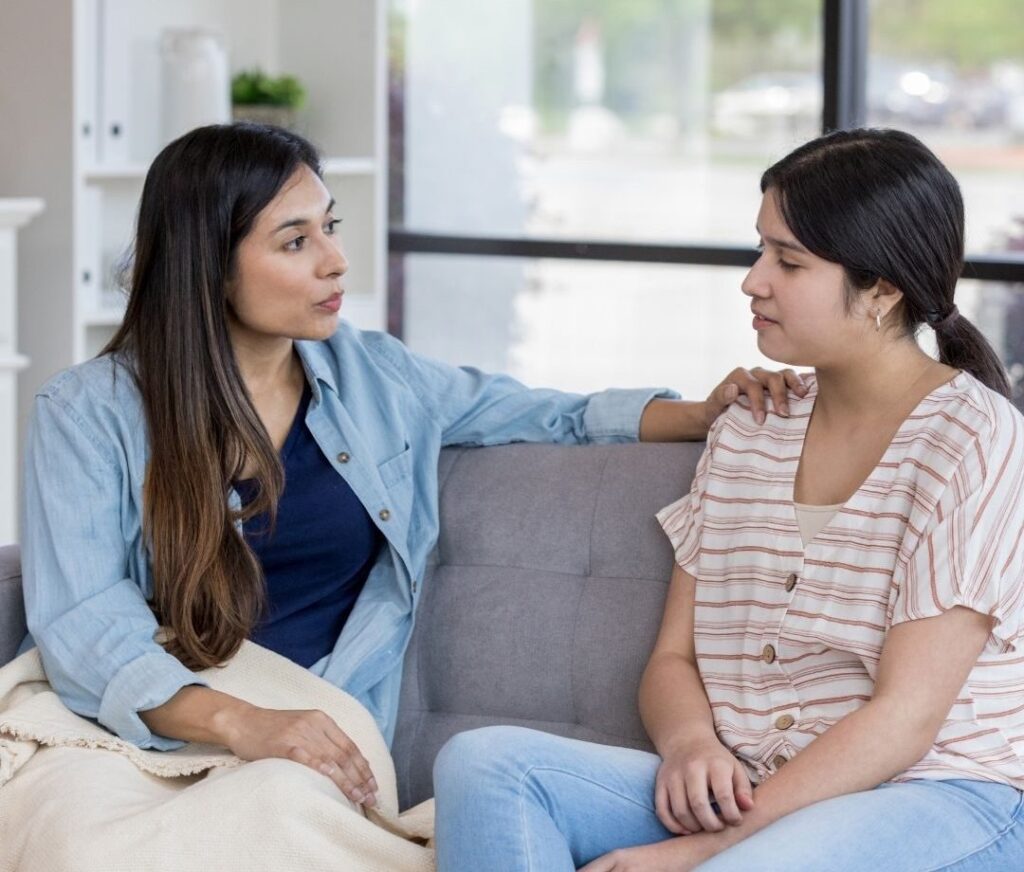
28 Apr The Pandemic Fatigue is Real, Parents! Help Kids in Coping with it.
We are tired. With this simple, prosaic statement, let’s turn the gaze towards our family. It has been an arduous last year. With no end in sight to a normal life, we need to find a new reservoir of strength. We need to dig a little deeper. We need to endure this for a little more time.
Let’s zoom out and see the current pandemic in a historical context. We had a good run. Our parents came from the post second world war chaos and never left behind the early years of uncertainties. It reflected in their hoarding, in their nervous ticks, in their saving mindset. We had a secular growth run for three decades. We collected toys: from the latest mobile phones to Wii consoles to Cannondale Evo Hi-Mod to Vaporfly shoes. But we didn’t prepare for a pandemic, for a lockdown. We were preparing for the next vacation and suddenly our plan got dashed by a batty virus.
We miss our office. We miss our always-in-the-face irritating boss. And, yes, we do miss our office spouse. We never realised that behind all that tough veneer, we are social creatures who like inane conversations over coffee. We like a pint of beer with friends and to engage in shop talk.
And, if this is what we are experiencing then what’s happening to our kids. Their world has upended: the academic calendar has no end and teachers bumbling around zoom buttons is not fun anymore. During the adolescent age, peer group is everything. For a teenager, peer group is a social identity. It is her/his shield against the world and now that group is not available. Many studies are seeing kids experiencing almost a PTSD level of anxiety.
In my work, I have come to know of three fears that almost all adolescents experience to some degree. These are: a) fear of losing a family member (especially parents), b) fear of parental separation and c) financial pressure on the family. With the fear of illness looming large and almost all conversations having a tinge of impending doom, the world of kids is filled with fear. With kids spending a lot of time with parents, they are witness to minor issues getting blown out of proportions. In most of the families, there are a very few conversations about money and suddenly money is at the centre of all discussions. The parents who were almost super humans suddenly look like vulnerable, mere humans. This is difficult for kids to understand.
Parenting is not easy. As parents, we are fighting our own demons. My work involves speaking with adolescents and many a times with parents. I am as anxious as any other parent out there and there have been many a times where I just happen to be on the other side of the table. I am acutely aware of my own short comings as a parent. I make an effort to learn from varied sources and develop a framework. My writing is to share my own learnings.
Here is my five point framework for parents to help their kids

-
-
- Manage Your Own Anxiety: We have all heard of the aircraft safety drill where in an event of low pressure, we are told to wear our own oxygen mask first before assisting children and elderly. There is great insight behind this innocuous instruction. We can help our dependents ONLY if we are in control of our own emotions. Find out what works for you and manage your own emotional turmoil. Kids imitate parents’ emotional response and your calm demeanour can be an immense learning for them.
- Let’s talk about anxiety: We all need a vocabulary to express our emotions, fears, love, frustrations. In the absence of words, we are left with a vague feeling of dread. By bringing out the stress from the closet, we give it a shape and texture. Kids learn to identify specific demons and by naming them they take steps to tame it. Also, by talking about anxiety, we remove shame and embarrassment associated with it and provide a specificity. Parents can help children in expressing their own anxiety.
- Framing Matters: Anxiety can be debilitating but if managed well, it can lead to superior performance. Sports has a built-in feature of nervousness before an important match, due to the uncertainty of the result. This is where sports teach us the temperament to focus on one ball at a time, one lap at a time. By focussing on a smaller unit, doing your best for one day at a time, we can help in managing seemingly unsurmountable long weeks, months.
-
-
-
- Involve them in decision making: Even in uncertain times, don’t take away the agency of action from your kids. In the age of information overload, parents can help kids by helping them identifying relevant material and presenting them with a few options so that they can voice their views. You may not follow their suggestions but you can certainly lend a ear to them. Kids can be involved in postponement of holidays and family get togethers.
- Sports and music: This is my favourite section. I urge parents to use sports and music to show to their kids that they are not just preaching but playing the role of a responsible adult. There is a growing body of research that shows the importance of routine. A simple exercise routine on a daily basis will help in channelizing pent up energy to give It a productive outlet. Any physical activity in a time like this will keep you moving and help with sleep. Remember, as a human race, we don’t know a better antidote to stress than music. Start from exchanging your top ten with your kid’s top choices. You may discover a new treasure trove.
-
